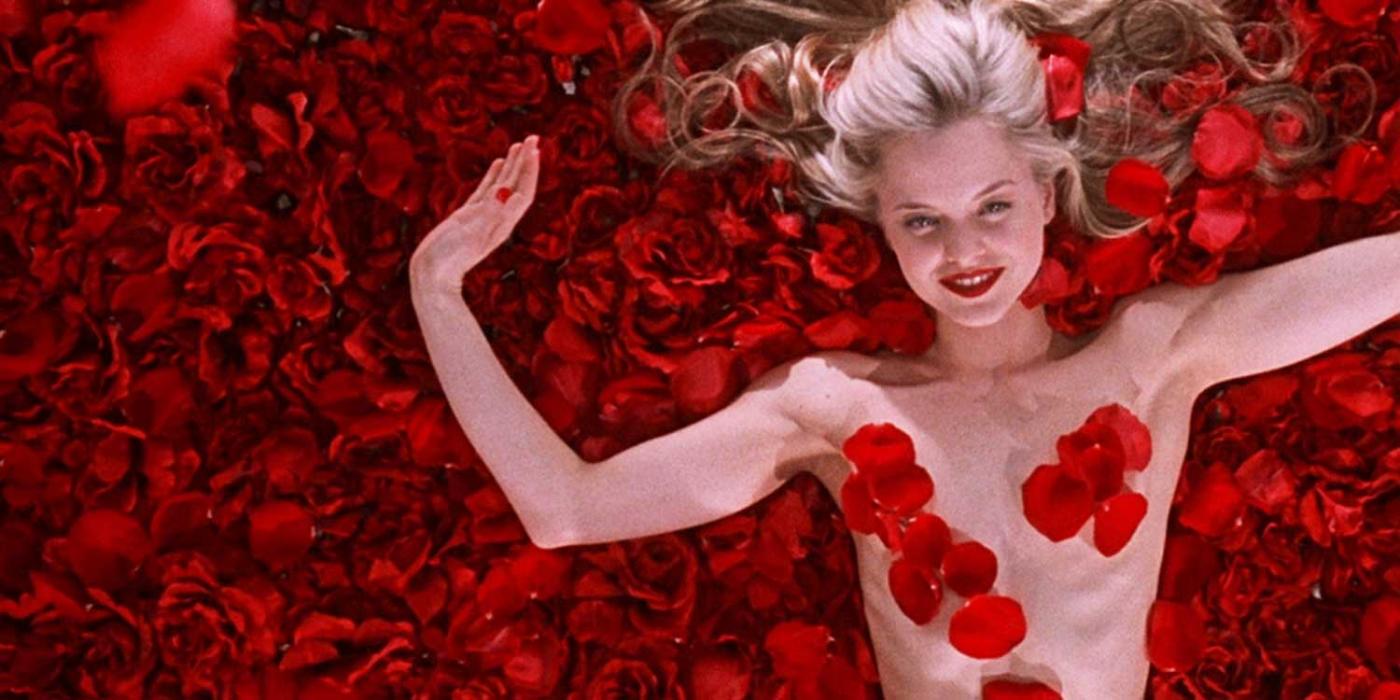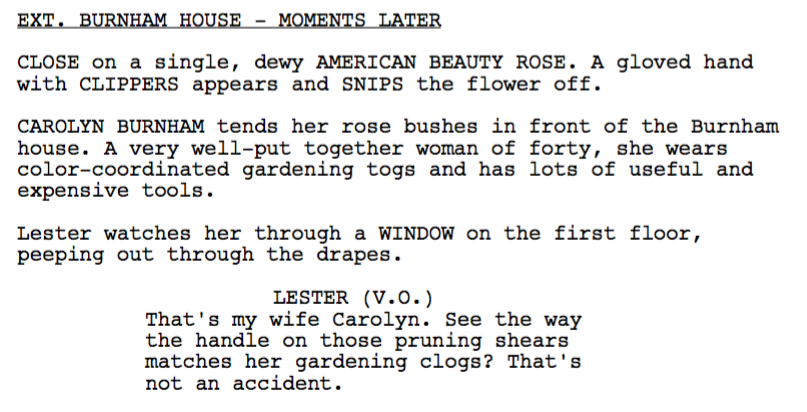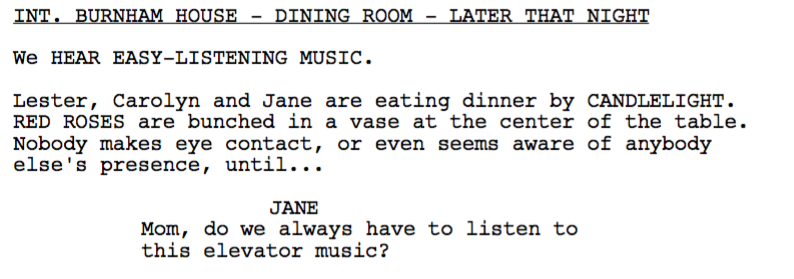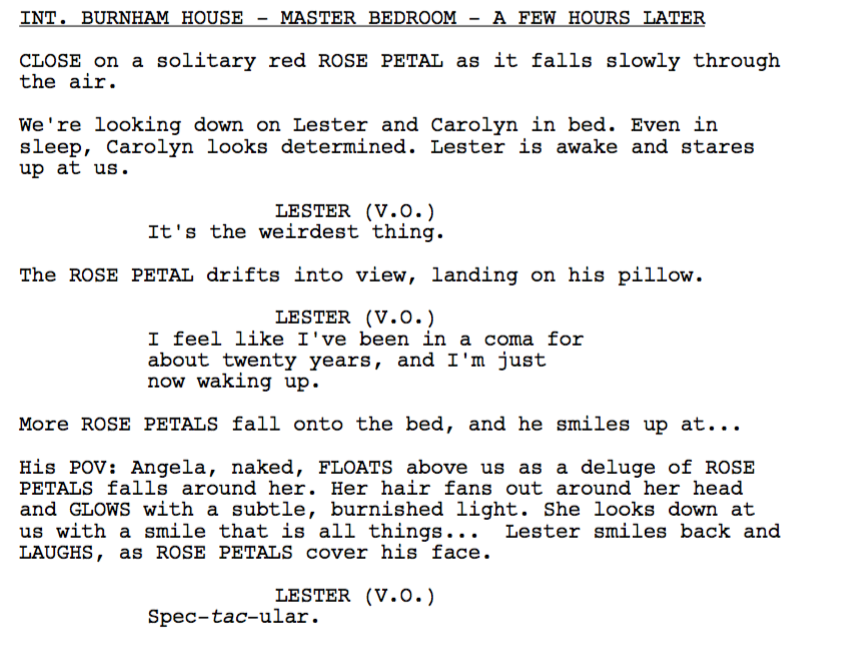Last month we dove into one of the most iconic shower scenes in cinema for April Showers. For May Flowers, Jorge takes a look into one of the most famous thematic uses of a flower in film.

American Beauty was at one point supposed to be titled American Rose. This is neither a coincidence nor an appropriate alternative. The film, a satire about American suburbia and the layers of darkness that society hides underneath their pretty but rotting exteriors, heavily uses the recurring image of roses throughout. Not just in the now iconic nude sequence with Mena Suvari.
Roses appear through Alan Ball's script in many key parts, usually in places where a character is putting up a façade for the world, or when they are completely submitting to their darkest impulses. Or when those two collide. Let’s take a look at where the flowers ominously represent both the attachment and the repulsion against society’s “pretty” standards...
American Beauty
Written by: Alan Ball
[You can read the whole script here]
Roses in American Beauty are usually associated with our two main characters, Lester and Carolyn Burnham. Although they represent something completely different (and actually thematically opposite) for each.
They are first introduced as Carolyn Burnham is trimming and clipping the rose garden in front of her house. Her perfectly tended, carefully looked after house. For her, roses will symbolize the fake stability and normalcy that she and her family carry. We start with a single shot of a rose that later gets snipped. Just like her life would as the movie develops.
Roses appear again (maybe even the same ones she was snipping), as she and her family eat dinner, centered in a vase, where “nobody makes eye contact, or even seems aware else's presence.” A much less pretty version of the image the projects to the outside, but her delusion is still very much present in the room.

***

For her husband Lester, roses symbolize the complete opposite. They appear in moments where he wishes to give up his well-presenting image, and give in to his most carnal, passionate, and deviant desires. This is primarily focused on his lust towards Angela, one of the young cheerleaders at his daughter’s school.
Anytime Lester fantasizes about Angela, the image of a rose appears in some form inside his fantasy: rose petals in his mouth after a passionate kiss, spilling out of her cheerleading uniform as she unzips it, and falling into a bed with her naked image in the now iconic sequence. If for his wife they symbolize the slowly crumbling perfection that she puts forward, for Lester they stand for the creeping desires that slowly overtake him and eventually lead him to self-destruction.

***

***

There is a point in the script where both of the Burnhams’ crumbling realities collide. And roses are present there as well.
The first one is a foreshadow, still not plunging Carolyn completely into the irreconcilable reality that she will find herself into by the end. As she comes back home, carrying a basket of fresh cut roses (holding tightly to her “beauty”), she sneaks a peek of Lester in a bench press; an image that will lead to a much larger and fatal misunderstanding later on.
And by the end of the film, after Lester has decided to repress his desires and not to go forward with Angela, the roses appear again to prove he can’t run far away. As an unseen figure shoots him in the head, we cut to a perfect arrangement of flowers. After the shot is fired, the white tile behind is sprayed with blood, “as crimson as the roses”.

***


The use of roses in American Beauty goes way beyond a simple visual motif. It is directly tied to the themes of the movie and the journeys of the characters, following them from their introduction to their demise. Even though they represent different things for different people, at the end it’s a visual representation of the passionate desires they hold, and how they will ultimately be their downfall. As much as they want to hold on to them, every rose has its thorn.